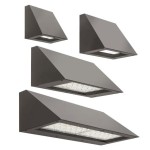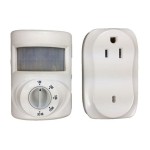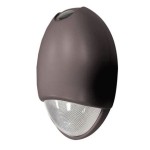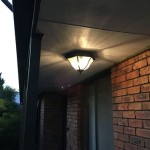Outdoor PIR Light Sensors: A Comprehensive Guide
Outdoor Passive Infrared (PIR) light sensors are valuable devices for enhancing security and convenience in outdoor spaces. These sensors detect movement using infrared technology, triggering lights to turn on when motion is present, deterring potential intruders or illuminating pathways for safe navigation.
Essential Aspects of Outdoor PIR Light Sensors
To ensure optimal performance and effectiveness, consider the following essential aspects when selecting and installing outdoor PIR light sensors:
1. Detection Range
The detection range determines the distance at which the sensor can detect movement. For effective coverage, consider the intended area to be monitored. Most PIR sensors have a detection range of 20 to 150 feet, with adjustable settings to customize the coverage area.
2. Detection Field
The detection field refers to the area within which the sensor can detect movement. PIR sensors typically have a wide field of view, ranging from 90 to 180 degrees, making them suitable for monitoring large areas. Choose a sensor with an appropriate detection field to ensure it effectively covers the desired space.
3. Sensitivity
The sensitivity determines the threshold at which the sensor triggers a light response. Higher sensitivity results in a faster response time, but it can also lead to false triggers caused by minor movements or environmental factors. Adjust the sensitivity according to the specific application and environment, balancing reliability with avoidance of nuisance triggers.
4. Mounting Height and Location
Proper mounting height and location are crucial for maximizing sensor performance. Mount the sensor at an appropriate height to ensure clear line-of-sight within the desired coverage area. Avoid placing the sensor near heat sources or reflective surfaces that can cause false triggers.
5. Weather Resistance
Outdoor PIR light sensors must withstand harsh weather conditions. Look for sensors with an IP (Ingress Protection) rating that indicates their resistance to water and dust. A higher IP rating ensures greater protection against environmental elements, extending the lifespan and reliability of the device.
6. Light Control Features
Consider the light control features available with the sensor. Some sensors provide adjustable light duration, allowing you to customize how long the lights stay on after motion is detected. This feature helps optimize energy consumption and prevent unnecessary nighttime illumination.
Conclusion
When selecting and installing outdoor PIR light sensors, carefully consider these essential aspects to ensure optimal performance. By choosing sensors with appropriate detection range, field, sensitivity, mounting height, weather resistance, and light control features, you can create a secure and well-lit outdoor environment, enhancing both safety and convenience.

Auraglow Pir Motion Sensor Up Down Outdoor Wall Security Light Warminster Stainless Steel Led Lighting

Up And Down Pir Motion Sensor Wall Light For Outdoor Use

Asher Outdoor Wall Light With Pir Sensor Stainless Steel Bhs

Auraglow Pir Motion Sensor Stainless Steel Up Down Outdoor Wall Security Light Warminster Black Led Lighting

Billy Outdoor Pir Sensor Wall Light Dunelm

Cava Outdoor Rectangular Wall Light Pir Sensor Bhs

Lepro 20w Security Lights Outdoor Motion Sensor 1700 Lumen Pir Light Ip65 Waterproof Flood

Sambesi Pir Sensor Outdoor Wall Light

Alma 10 Watt Led Outdoor Flood Light Pir Sensor Litecraft

Auraglow Black Arch Integrated Led Motion Sensor Pir Outdoor Wall Light Adobe Lighting
Related Posts







